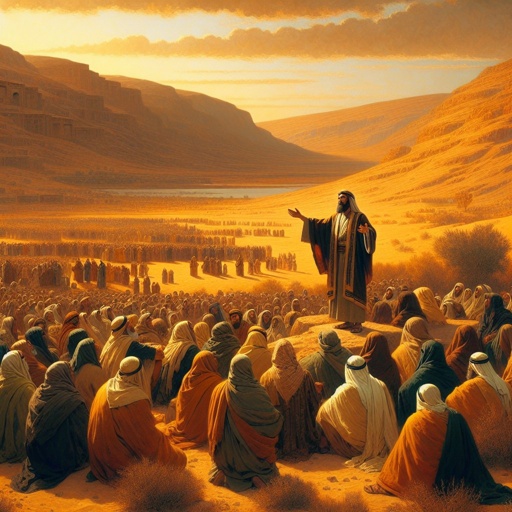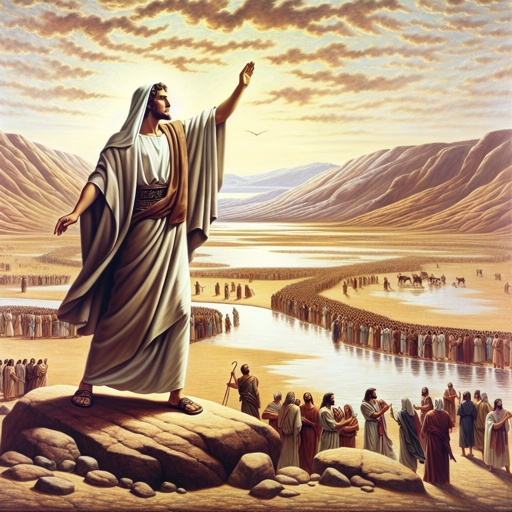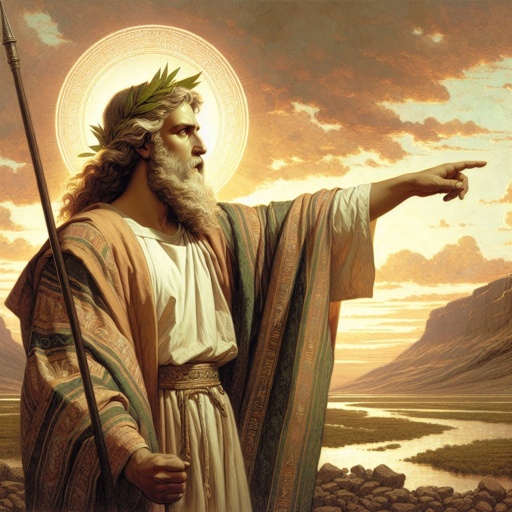What does Exodus 13:7 mean?
"Unleavened bread shall be eaten seven days; and there shall no leavened bread be seen with thee, neither shall there be leaven seen with thee in all thy quarters." - Exodus 13:7

Exodus 13:7 - "Unleavened bread shall be eaten seven days; and there shall no leavened bread be seen with thee, neither shall there be leaven seen with thee in all thy quarters."
Exodus 13:7 (KJV) says, "Unleavened bread shall be eaten seven days; and there shall no leavened bread be seen with thee, neither shall there be leaven seen with thee in all thy quarters."
This verse comes from the Old Testament book of Exodus, which tells the story of the Israelites' escape from slavery in Egypt and their journey to the Promised Land. In this particular verse, the Lord is giving instructions to the Israelites regarding the observance of the Feast of Unleavened Bread.
The context of this verse is the aftermath of the Israelites' exodus from Egypt. The Israelites had just experienced the miraculous deliverance from slavery, with the ten plagues, the parting of the Red Sea, and the destruction of the Egyptian army. Now, as they begin their journey through the wilderness, the Lord is establishing guidelines for their worship and observance of religious rituals.
The theme of the Feast of Unleavened Bread is one of obedience and remembrance. The removal of leaven from their homes symbolized their separation from the old life of slavery in Egypt and their commitment to following God's commandments. Leaven, which causes bread to rise, represents sin and corruption in the Bible. By eating unleavened bread for seven days, the Israelites were reminded of their liberation from sin and their dedication to a new life of obedience to God.
The symbolism in this verse is significant. The removal of leaven from their homes was a physical act that represented a spiritual truth. Just as the Israelites were to rid their homes of leaven, so too were they to rid their hearts and lives of sin. This practice served as a constant reminder of the need for holiness and purity in their relationship with God.
Furthermore, the seven days of eating unleavened bread also carried symbolic meaning. The number seven is often associated with completeness and perfection in the Bible. By observing this feast for seven days, the Israelites were demonstrating their complete commitment to God and their desire to live in perfect obedience to His commandments.
In a broader sense, this verse teaches us about the importance of obedience and faithfulness in our relationship with God. The Israelites were called to follow the Lord's instructions without hesitation, trusting that He had their best interests at heart. Similarly, as Christians, we are called to obey God's word and trust in His promises, even when we may not fully understand them.
Overall, Exodus 13:7 conveys a powerful message about the significance of obedience, remembrance, and commitment in the life of a believer. The observance of the Feast of Unleavened Bread served as a tangible reminder of the Israelites' deliverance from Egypt and their dedication to a life of holiness. As we meditate on this verse, may we also be reminded of the need for obedience and faithfulness in our walk with God.
Exodus 13:7 Artwork

Exodus 13:7 - "Unleavened bread shall be eaten seven days; and there shall no leavened bread be seen with thee, neither shall there be leaven seen with thee in all thy quarters."

Exodus 7:13 - "And he hardened Pharaoh's heart, that he hearkened not unto them; as the LORD had said."

Exodus 14:13

Exodus 14:13

Exodus 14:13

Exodus 14:13

Exodus 14:13

Exodus 14:13

Exodus 14:13

Exodus 14:13

Exodus 14:13

Exodus 14:13

Exodus 14:13

Exodus 14:13

Exodus 14:13

Exodus 14:13

Exodus 14:13

Exodus 14:13

Exodus 14:13

Exodus 14:13

Exodus 14:13

Exodus 14:13

Exodus 14:13

Exodus 14:13

Exodus 14:13

Exodus 14:13

Exodus 14:13

Exodus 14:13

Exodus 14:13

Exodus 14:13